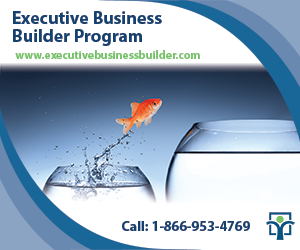
A Leader’s Role in Change Management
Last month we discussed the key disruptors leaders need to deal with in building their businesses to the next level. Scaling up is important . . . but what does that mean? What skills do you need to lead your team through dramatic change and get better results? You essentially have two choices: create a culture of compliance or a culture of collaboration.
A culture of compliance is an environment in which people are externally rewarded by things like their salary. That can work in the short term, but over the longer term, you’ll need to accomplish so much more together, and that’s where your skills in developing a strategy for collaboration come in.
Leaders must help organizations grow and develop. Whether the organization is a family, a business or a community organization, leadership by its very nature enables and nurtures change.
But what differentiates really successful leaders from average leaders is their ability to understand what it takes to develop enduring relationships with the people in their sphere of influence – including their employees, and the subcontractors that work within the business. Successful leadership, in short, is about the relationships you build to support your vision – throughout the entire eco-system in which you operate.
To do that well, successful leaders must know themselves really well, so that they can master the complicated behavioral and emotional issues that arise frequently in the leadership role. That’s never easy.
Your team may not want to change, they may not be willing to put in the educational effort it’s going to take to succeed, follow and develop new policies and procedures, train and nurture their fellow team members. Not easy, but still fascinating, it’s a challenge that great leaders are up to.
 |
Consider this: your first opportunity in your own personal leadership development is to think about your personal values, attributes and behaviors—and how they manifest themselves in good times and in bad. Then ask yourself—without being too critical—do I have the characteristics deserving of my team’s respect, so we have the culture to get through change successfully together? If not, what can I improve in myself, our policies and procedures and our culture to get there?
I’d like to leave you with one of my favorite quotes on authentic leadership, from Dr. Ross Lawford, the author of The Quest for Authentic Power, whom we have had the pleasure to work with at Knowledge Bureau:
“When head and heart are working in cooperation . . . thought, word and deed are in harmony. This shows itself as integrity and authenticity, and where there is authenticity there is authentic power.”
Examples of authentic leadership in action are all around us every day—inspirational, aspirational, effective, amazing leaders. Which leadership skills do you respect and admire most? Please be sure to comment, as this is the current subject of discussion in the Executive Business Builder Network.
Evelyn Jacks is the creator of the Executive Business Builder Program, which helps small businesses acquire new skills necessary to grow their enterprises, and is the co-author of Get Your People to Work Like They Mean It. She is also Founder and President of Knowledge Bureau. She has twice been named one of the Top 25 Women of Influence in Canada, and has won the prestigious Rotman School of Business Canadian Woman Entrepreneur of the Year Award.
Additional Educational Resources: Business Leadership, Culture and Continuity, a certificate course by Joanne Sigurdson, published by Knowledge Bureau. Learn how to invest in the people who work with you to create an innovative culture in which all stakeholders in the success of the organization are focused and working in unison. Learn how to build a new generation of leaders for the future.
©2017 Knowledge Bureau Inc. All Rights Reserved.





